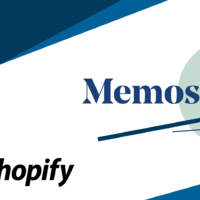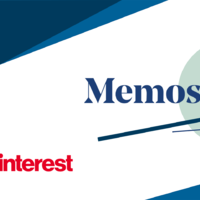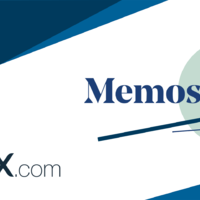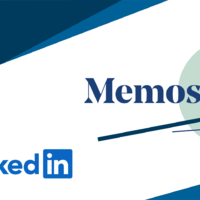Collection
Memos
"Like the knight’s sword, the firefighter’s hose, and the lumberjack’s ax, venture capitalists courageously wield the memo.
For VCs, learning from mistakes is easy. In fact, we make so many that we’re experts on what not to do. What’s hard is to learn from success. How did we spot those baby unicorns in the wild? Did we just get lucky? Because we really want to find more of them.
To glean patterns from those particularly beneficial early-stage decisions (and sometimes just to nourish our fragile egos), we find it helpful to publish and scrutinize the Investment Recommendation Memoranda that we circulated years ago. One pattern that consistently emerges is that Bessemer’s best investment decisions centered on people. In retrospect, the early products themselves are barely recognizable today. Rather, passionate, analytical and relentless founders zigged and zagged their way to that elusive “product-market fit”, and these memos provide a glimpse of those winning entrepreneurs before they were famous. They are the prequels of our heroes, as inspirational to us as The Hobbit, Solo, Batman Begins, and Better Call Saul.
Because, really, who doesn’t love a good memo?" - BVP
- Curated in Memos
As a new partner at Bessemer in 2010, Alex Ferrara’s first investment recommendation raised eyebrows when he led the Series A round for a young, first-time CEO in Ottawa selling SaaS to tiny online storefronts. Ten years later, Shopify was the most valuable company in Canada.

- Curated in Memos
In 2011, two first-time entrepreneurs pivoted from their original iPhone app to a small social sharing feature of “pinning” product images from around the web. They pitched Jeremy Levine without a business model or a scalable architecture. But the passionate, burgeoning community was a positive sign, so Jeremy led the Series A round at a “very expensive” $40 million pre-money valuation. Pinterest went public in 2019, reaching a market cap north of $20 billion.

- Curated in Memos
In 2009, a former snowboarding merchant and two coders promised David Cowan and Ethan Kurzweil to disrupt the whole telecom industry with a simple five function software library for web developers, and somehow Jeff Lawson prevailed upon them to make a seed investment in Twilio. Twilio’s focus on developers paid off, enabling applications like Airbnb, Venmo, DoorDash, Lyft and Spotify, and, by 2020, generating a $35 billion market cap.

- Curated in Memos
A spin-out of a famously failed startup (Justin.tv), Twitch lets you watch others play games. Back in 2012, the whole idea struck us as ridiculous, and there was no monetization yet, but first-time founder/CEO Emmet Shear impressed David Cowan and Ethan Kurzweil. Just two years later, Amazon bought Twitch for a billion dollars.

- Curated in Memos
When Adam Fisher met the team in 2007, Wix’s vision was to make it easy for anyone to build a professional Flash website. Adam trusted these founders to develop a business model and to navigate a technical path beyond the numbered days of Flash, and so he led the seed round at $7 million pre-money. By 2020, Wix’s market cap exceeded $14 billion.

- Curated in Memos
In 2005, two first-time entrepreneurs launched a “Web 2.0” yellow pages company for local merchants. Jeremy Levine led the company’s first venture financing at a $13 million pre-money valuation. Eight years later, Yelp went public.

- Curated in Memos
In 2009, two software engineers with no hardware experience pitched David Cowan and Ethan Kurzweil their idea of building the iPod of Internet cameras. All they had to do was beat out consumer giants like Panasonic and Logitech. In 2014, Google’s Nest acquired Dropcam for $555 million.

- Curated in Memos
Former Navy officer Rick Stollmeyer, an IT consultant in San Luis Obispo, launched Mindbody to help yoga and pilates studios schedule appointments and manage their businesses. Jeremy Levine and Brian Feinstein saw its potential to expand into salons and invested $8 million. Mindbody went public five years later, and was since acquired for $2 billion.

- Curated in Memos
Ethan Kurzweil heard PagerDuty’s pitch to manage IT alerts in the cloud just as a formidable incumbent launched a similar product. But Ethan liked the team so much that he led their Series B. Five years later, PagerDuty (NYSE: PD) hit a $1.8 billion valuation at IPO.

- Curated in Memos
Three former email server administrators at UC Riverside launched a startup to help application developers bypass their users’ spam filters. Despite heavy competition throughout the email ecosystem, Byron Deeter and Ethan Kurzweil liked SendGrid’s developer focus, and led their Series B. In 2017, SendGrid went public and was then acquired by Twilio a year later.

- Curated in Memos
A global marketplace for buying and selling $5 gigs? Adam Fisher saw beyond the gimmicky, faddish feel of Fiverr when he decided to lead their Series A, comparing the company’s peculiarity to eBay and YouTube’s respective, primitive beginnings of PEZ dispensers and cheesy home videos. Fiverr went on to become a leader in the freelance gig economy, going public in June 2019.

- Curated in Memos
Described as a MySpace for business users, LinkedIn was the most popular business networking site developed by a talented team of Silicon Valley entrepreneurs. But could LinkedIn develop a business model, expand beyond tech job seekers, and stave off competition from Facebook? Jeremy Levine bet they could by leading a round in 2006. Five years later, LinkedIn went public, and five years after that Microsoft acquired the business for $26 billion.
